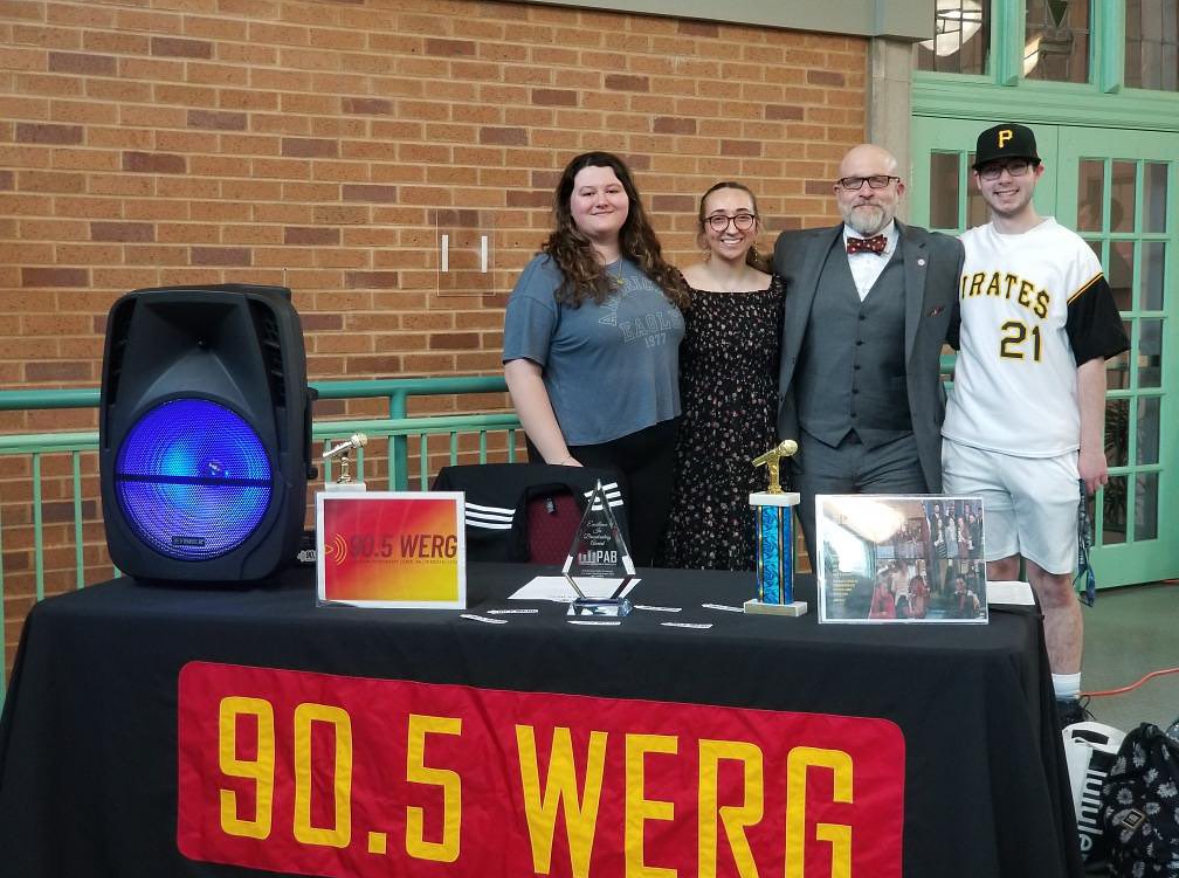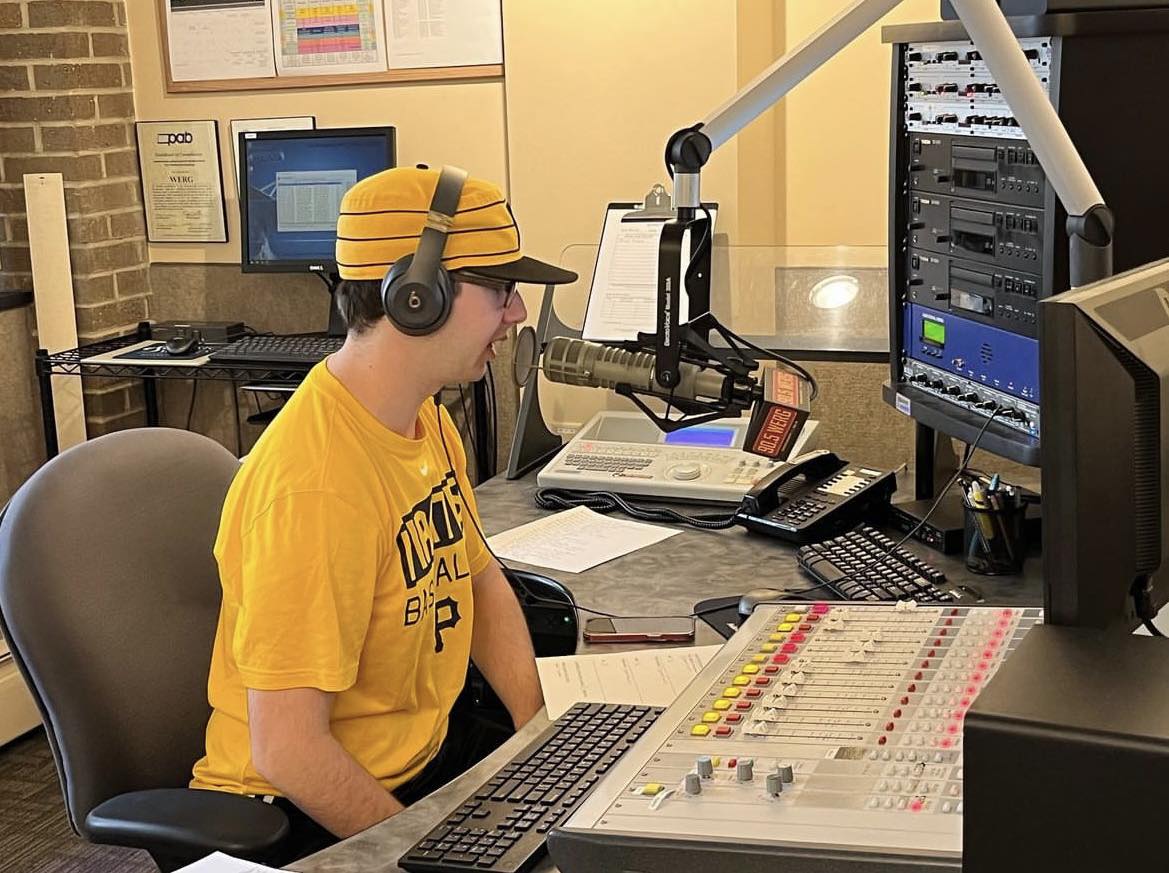Most Catholics are now aware that some changes to the Mass have come along in the past few months, but many are still unaware of the meaning behind these changes.
Gannon University has done its part in trying to incorporate the new Roman missal into its Sunday Masses, but confusion still exists among students as to what these changes are, exactly, and why they’re being implemented.
The Rev. Michael Kesicki, an instructor in Gannon’s theology department, explained that the Roman missal is the Mass book, which contains all the prayers the priest and the people use during Mass. He said it contains special texts for feast days, such as Christmas, Easter and saints days.
Kesicki said that the changes to the Mass are a result of a new English translation of the missal. The Vatican called for a new translation, he said, because the principles that guided translation changed. The new words, which were officially implemented in churches nationwide at the beginning of December, are meant to be “equal Latin,” or closer to the exact Latin than the previous translation.
Deacon Stephen Washek, director of campus ministry at Gannon, also said that bringing the English closer to the exact Latin was one of the goals of the changes to the missal.
Washek said that the change was mainly for the people. “The goal is to bring uniformity in what everybody is saying,” he said, “bringing it back to a literal translation instead of dynamic equivalency.”
He said that dynamic equivalency – what the church was previously using for translation – uses the same concept for the words, but they aren’t exactly the same as the Latin.
Kesicki, meanwhile, said the Vatican provided two main reasons for the new translation. First, like Washek, he said they wanted the English translation to look as much like the Latin as possible.
Secondly, Kesicki said the new translation is supposed to sync more closely with the Bible. “A lot of the language has quotes out of the Latin so the prayers would reflect scripture,” he said.
He said one part of the new translation in which this really shows through is the invitation to Communion. The congregation used to say, “Lord, I am not worthy to receive you, but only say the word and I shall be healed.”
Using the new translation, the congregation says, “Lord, I am not worthy that you should enter under my roof, but only say the word and my soul shall be healed.”
Kesicki said these new words are in reference to a passage in Matthew’s Gospel in which a Centurian asks Jesus to heal his servant, and when Jesus says he will go and heal him, the man says that he is unworthy for Jesus to enter under his roof, but if he only says the word his servant will be healed.
Kesicki said this is just one example of the many new scriptural references in the Mass.
Junior accounting major Amanda Green, who often cantors at Sunday Masses at Mary, Seat of Wisdom Chapel and attends Mass every week, said the transition to the new words went smoothly at the university. She said one hard part was going home after being used to the service music that Gannon was using. “When I went home it wasn’t the same,” she said, “and I felt really confused.”
She said that Gannon did a good job of informing the congregation that the changes were coming, and preparing everyone with pew cards and lessons on the new music.
“At first it was different,” Green said, “but I’m starting to catch on.”
Washek said the significance behind the new translation of the missal is unity around the world. He said that the rest of the world uses a more literal translation to the Latin, so this way no matter where you go – especially in English-speaking countries – you should be using the same translation as you would be using at home.
“Unity all over the world, that’s a beautiful notion,” he said.
Meanwhile, Washek also said he can see why some students might have problems with the new translation. He said insecurity is one of the biggest problems when introducing it to students, because they’re changing words they’ve been saying for 18-plus years. “Some students get embarrassed because they don’t know what to say,” he said.
He said that overall, though, students are more adaptable than the older people who have been saying these words for 40-plus years. He also said it helps when campuses, like Gannon, do a good job of preparing and talking about the changes.
Overall, Washek and Green agreed that the changes were accepted at Gannon and the transition is going well. Meanwhile, Kesicki said he thinks the changes are a good thing for the church as a whole.
“Most of all,” Kesicki said, “it gets us all talking about and appreciating the Mass again.”







